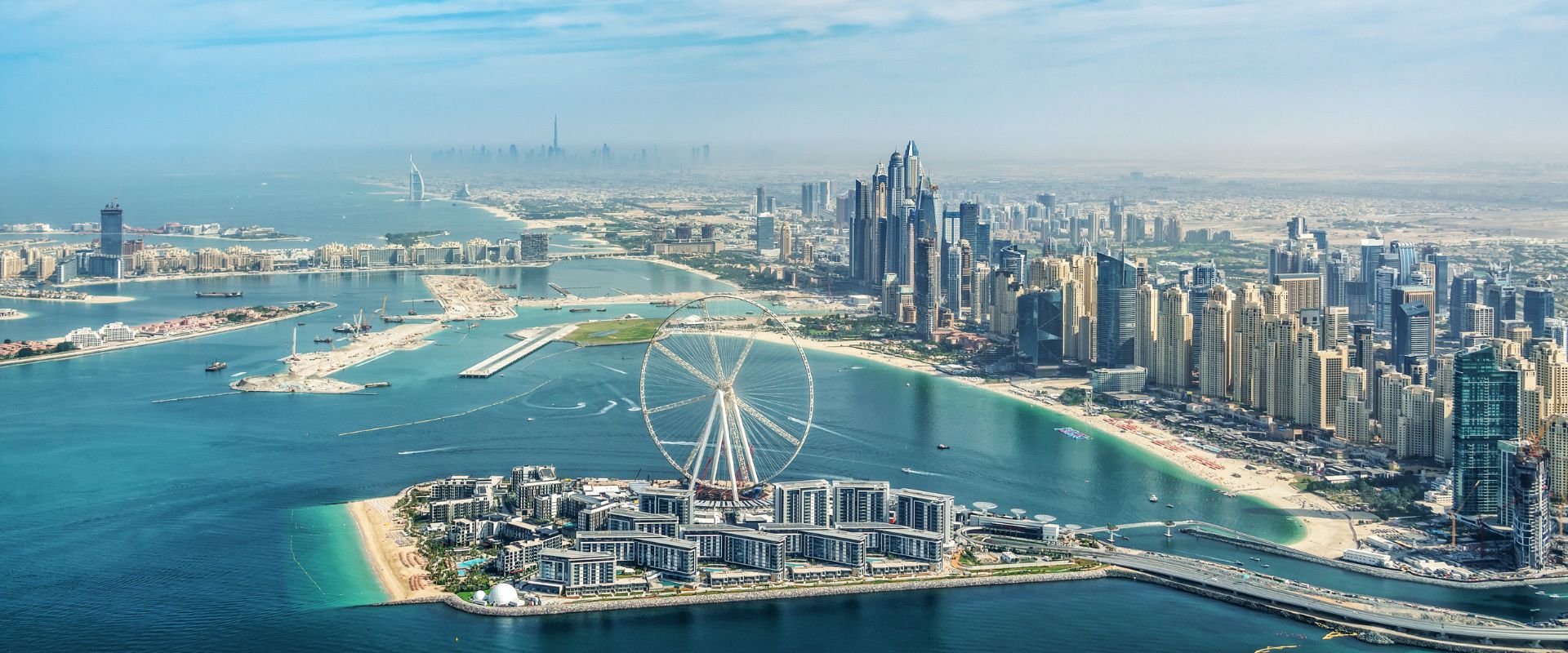
Choosing the Right Office or Warehouse Facility for Your Business in the UAE
Setting up a business in the UAE is an exciting and strategic move—but choosing the right office or warehouse facility is more than just a logistical step. It’s a critical decision that shapes your operations, brand image, and future growth potential.
This blog is for entrepreneurs, startups, and growing businesses who are either in the early stages of company formation or considering expanding their presence in the UAE. It’s also for those who want to avoid the costly mistake of choosing a Free Zone or facility that doesn’t support their long-term goals.
Many business owners make the error of selecting the cheapest or most convenient Free Zone, only to realize later that it doesn’t offer the space, services, or flexibility their business needs as it grows. Relocating a company or changing a license later can be both complicated and expensive.
So, whether you’re a freelancer, SME, or large trading company, read on to discover the types of facilities available in the UAE—and how to choose the one that matches your business vision.

Types of Office Facilities in the UAE
1. Virtual Offices – Maximum Flexibility, Minimal Costs
Virtual offices provide you with a legal business address, mail handling, and phone answering services, without the need to physically occupy an office.
Best for: online businesses, international firms, remote teams
Why choose this: a virtual office allows you to meet licensing requirements and open a UAE corporate bank account—without the cost of a physical space. It’s a popular option for businesses testing the UAE market or working remotely.
2. Shared or Co-working Spaces – Flexible & Cost-Effective
Perfect for freelancers or small teams, co-working spaces offer a creative, collaborative environment with access to shared resources like desks, lounges, and sometimes even meeting rooms.
Best for: freelancers, consultants, and tech startups
Why choose this: these spaces are highly affordable and flexible, and some Free Zones include co-working access in their basic license packages. It’s also a great way to network with other entrepreneurs.
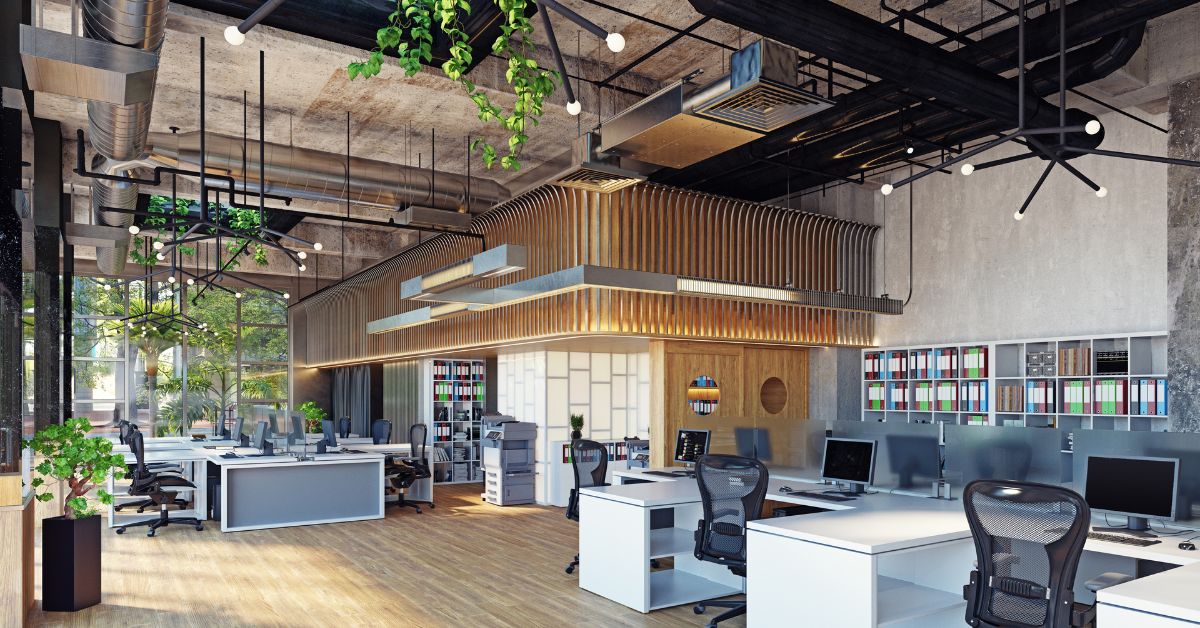
3. Executive Offices – For a Premium Professional Image
These high-end, private office spaces are designed to impress. Typically located in prestigious business areas like Downtown Dubai, DIFC, JLT, or Dubai Marina, they offer privacy, high-end interiors, and often come with concierge and premium amenities.
Best for: established businesses, client-facing industries, finance, law, and consultancy
Why choose this: beyond providing a workspace, these offices elevate your brand image—offering an environment that reflects stability, success, and professionalism. The prestigious location, premium interiors, and discreet services send a powerful message to clients, partners, and investors: your business is established, trustworthy, and built for high-level engagements.
4. Business Center Offices – Plug and Play Simplicity
Business center offices are ideal for entrepreneurs who need a ready-to-move-in solution. These offices are fully furnished, equipped with internet, reception services, meeting rooms, and daily cleaning.
Best for: startups, solo entrepreneurs, and small businesses
Why choose this: you save valuable time and resources on furnishing, setup, and utilities, allowing you to focus entirely on growing your business. Many Free Zones offer business centre offices within their complexes, streamlining both licensing and operational processes from the outset.
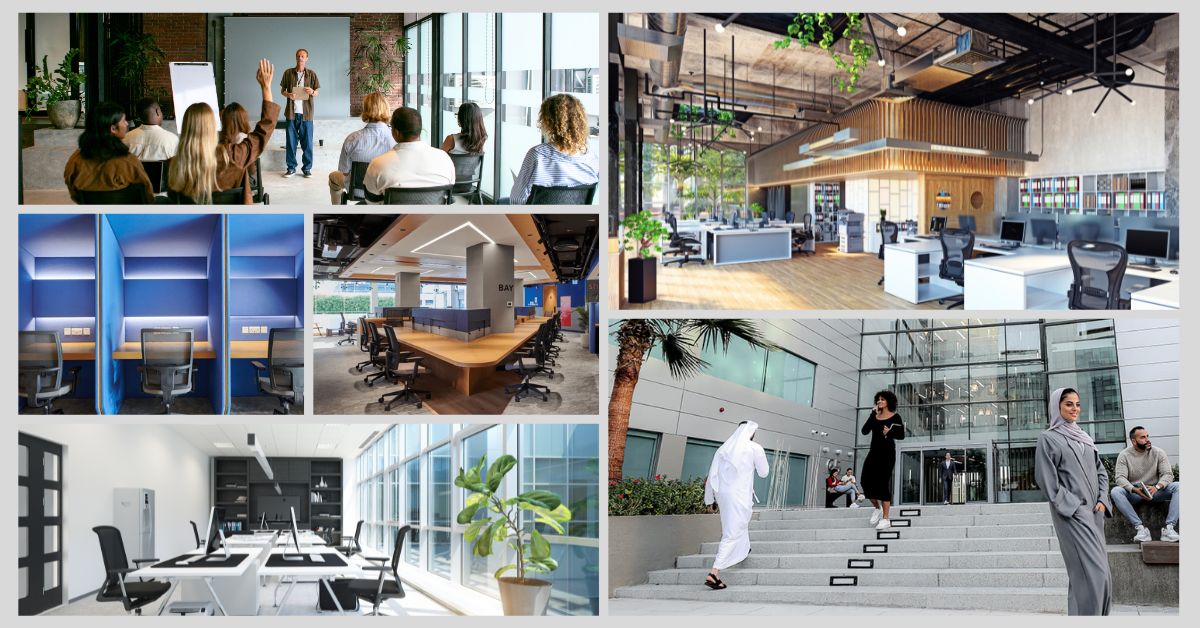
Types of Warehouses in the UAE
Whether you’re trading, manufacturing, or dealing with inventory, the type of warehouse you choose plays a major role in efficiency, cost control, and licensing compliance. Keep in mind that warehouse space in the UAE is in high demand—especially in key areas like Jebel Ali Port, Khalifa Industrial Zone, and Sharjah Free Zones—so planning ahead is crucial.
1. Storage Warehouses – For Inventory & Equipment Only
These are basic storage units meant solely for keeping goods and equipment. No business operations or processing activities are allowed inside.
Best for: e-commerce, importers, or service companies storing non-perishable items
Why choose this: storage warehouses offer a cost-effective way to keep your inventory close to key transport hubs without the need for a full-scale operational facility. Ideal for importers and e-commerce businesses, they help streamline logistics by reducing delivery times.

2. Commercial Warehouses – For Trade and Distribution
These warehouses are used to store products intended for sale. Often used by wholesalers and retailers, they serve as a mid-point between manufacturer and consumer.
Best for: trading companies, wholesalers
Why choose this: commercial warehouses support efficient stock management and faster order fulfilment, especially when connected to logistics networks.
3. Industrial Warehouses – For Manufacturing & Assembly
Designed for light to heavy industrial use, these facilities allow for the manufacturing, assembling, or packaging of goods. They require special licensing and compliance with safety regulations.
Best for: production, assembly lines, or customised product packaging
Why choose this: these are highly specialised units with larger space, loading bays, and necessary infrastructure for machinery.
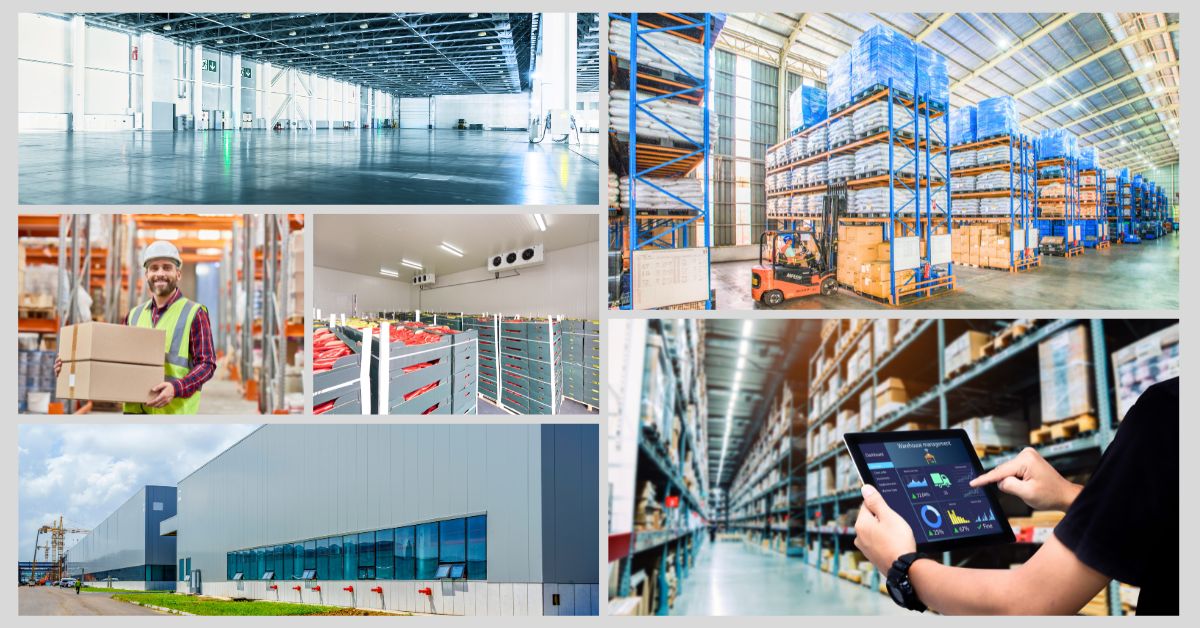
4. Cold Storage Warehouses – For Temperature-Sensitive Goods
Cold storage units are equipped with refrigeration and freezer systems to store goods like food, pharmaceuticals, or cosmetics.
Best for: food distributors, pharmaceutical companies, cosmetics traders
Why choose this: essential if your product requires strict temperature control, humidity regulation, and hygiene compliance.
5. Logistics Warehouses – For Quick Turnaround Operations
These are strategically located near ports or highways and optimised for quick loading/unloading, often with dedicated docks and access points.
Best for: logistics companies, delivery services, e-commerce fulfilment centers
Why choose this: If you need fast processing of orders and efficient delivery networks, this is the right choice.
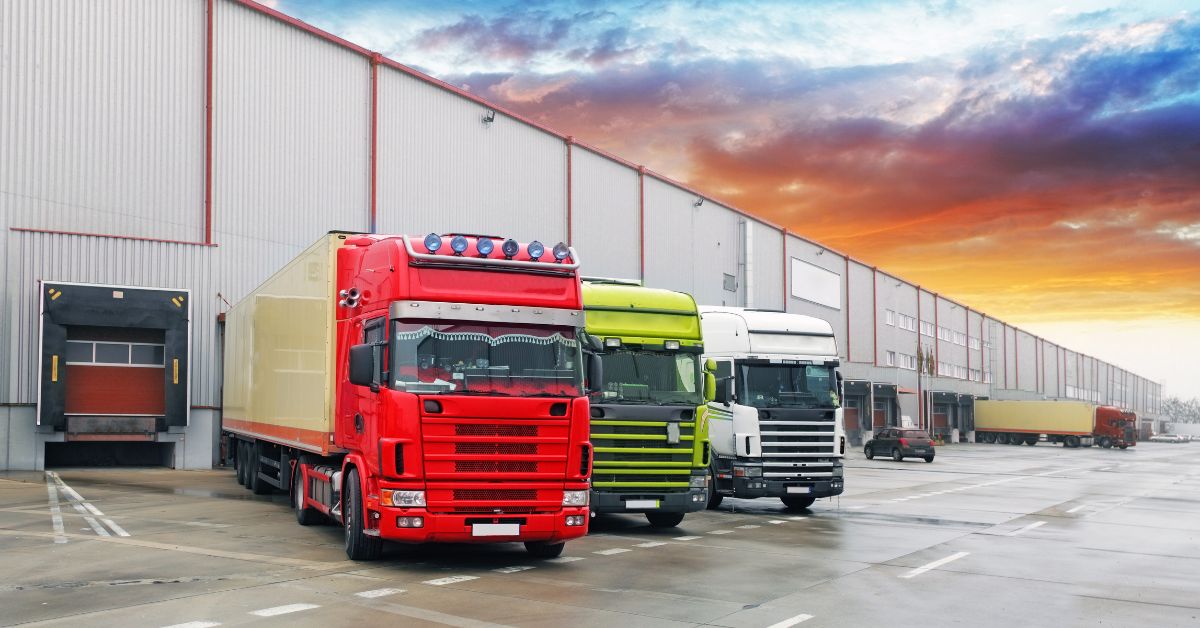
What to Consider Before Choosing Your Office or Warehouse
Choosing a facility in the UAE isn’t just about availability—it’s about aligning space with strategy. The location you select will shape your logistics, client access, and team efficiency. If your business depends on imports or exports, being near major ports and airports can significantly cut delays and costs.
Size matters. A space that fits now might not fit later. Make sure it allows for future expansion, so you’re not forced to relocate as you grow.
Your license type also plays a crucial role. Not every Free Zone supports every activity, and some require specific types of offices or warehouses. Choosing the wrong setup can lead to costly changes or reapplications.
While budget is important, the cheapest option often lacks the flexibility or services your business needs. Think long-term—will this facility support or restrict your growth?
And lastly, don’t underestimate approvals and infrastructure. For industrial or food-related businesses, especially, the right compliance and specifications from day one can save you months of delays and stress.
Let Us Help You Make the Right Start
At My Business Consulting DMCC, we know that the right foundation builds the strongest business. That’s why we don’t just help you open a company—we help you open the right one, in the right place, with the right facilities to support you today and empower you tomorrow.
We take the time to understand your vision, growth plans, and operational needs, and then guide you to the best Free Zone or mainland option with the facilities that will work for you—not against you—as your business evolves.
Let’s turn your business vision into a powerful reality—reach out to us for a free consultation and start your UAE journey with clarity and confidence.
